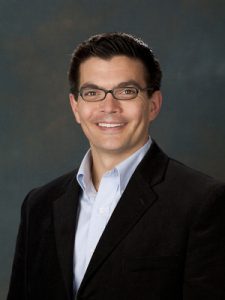- Sept. 21, 2018, 8:00 pm US/Central
- Fermilab Ramsey Auditorium
- Dr. Todd Thompson, The Ohio State University
- Tickets: $7
- Purchase tickets »
During its last day of existence, a massive star builds an inert iron core that cannot be used as further fuel for fusion. The balance between pressure and gravity is broken, and its 10 million-year life terminates in a fraction of a second, as its core collapses at nearly the speed of light. Somehow this implosion to an ultra-dense neutron star is either reversed, and a shockwave is launched that disassembles the overlying star in a supernova, or the core succumbs to gravity and collapses to a black hole. Dr. Thompson will review our current understanding of the supernova mechanism and focus on the potential importance of rotation and magnetic fields in instigating explosion, in determining the nucleosynthetic yield of heavy elements, and in affecting the early spin evolution of highly magnetic neutron stars. The last of these is of critical importance in assessing rapidly rotating highly-magnetic neutron stars as the central engine of gamma-ray bursts and the most luminous supernovae we find in nature.
Todd Thompson is a professor of Astronomy at The Ohio State University. He received his BA in physics and philosophy at Lawrence University in 1997 and his Ph.D. in theoretical astrophysics from the University of Arizona in 2002. Thompson was then a Hubble Postdoctoral Fellow at UC Berkeley and then a Lyman Spitzer Jr. Postdoctoral Fellow at Princeton before joining the faculty at The Ohio State in 2007. Thompson is the recipient of an Alfred P. Sloan Foundation Fellowship and a Simons Foundation Fellowship. He currently holds a visiting appointment at the Institute for Advanced Study in Princeton. An accomplished teacher, in 2014 he became the first professor in the history of the Astronomy Department at Ohio State to receive the Alumni Award for Distinguished Teaching, the university’s highest teaching award.





